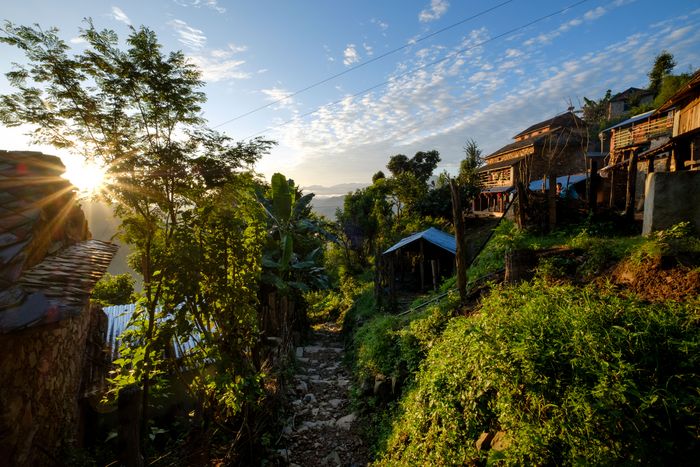Tour operators increasingly put emphasis on sustainability. From regional products at the breakfast buffet to financial incentives for guests arriving by train, an endless variety of ideas for environmental and climate protection exists. However, commitment is often not enough to prevent the worst effects of climate change. The Science-Based Targets initiative shows companies, including tour operators, how much and how fast they need to reduce their greenhouse gas emissions to limit global warming to 1.5 degrees.
Guideline to cope with new challenges: Science-based targets
Science-based targets are what they promise - approved by science, they provide a clearly defined pathway for companies to reduce greenhouse gas emissions in line with what the latest climate science deems necessary to meet the goals of the Paris Agreement: limiting global warming to 1.5°C, preventing the worst impacts of climate change and future-proof business growth. Since the Science Based Target initiative (SBTi) was founded in 2015, more than 1,730 companies are already taking action, also including travel businesses. And they have proved that these ambitious targets are not only attainable but also good for business. Until 2020, companies with targets validated by the initiative cut emissions by 25 percent - compared with a general increase of 3.4 percent in global energy and industrial emissions.
A MUST for the travel industry
As of today, travelling is already responsible for 22 percent of the whole CO2-emissions from transport. International and domestic arrivals are expected to increase from 20 billion to 37 billion, mainly driven by domestic tourism. Greenhouse gas emissions from the tourism industry have been forecast to increase at least by 25 percent until 2030, according to the latest research of the United Nations World Tourism Organization and the International Transport Forum from 2019.
Therefore, it is crucial for the tourism sector to transform into a zero-emissions economy and cooperate closely with the transport sector. Not only climate emergency but also increasing regulatory, investor and consumer pressures force the transport sector, especially aviation, to take action. For this reason, SBTi has recently published guidelines to encourage companies with air transport emissions to set science-based targets and demonstrate concrete sustainability commitments to increasingly conscious consumers.
Taking action: Intrepid Travel
Intrepid Travel is the largest B-Corp travel company, a certificate that is given to ethical companies that believe in a form of business that can be a force for good - for communities, suppliers, customers but also for the environment. Zina Bencheikh is Intrepid Travel’s managing director for the EMEA region based in London: “Our strategy was to measure our emissions, reduce them and then offset the rest. But we realized that being carbon-neutral only by offsetting was not enough. Science was pretty clear about this. Therefore, we decided to declare climate emergency in January 2020 along with the initiative Tourism Declares.”
The company made seven commitments. One of them was to introduce science-based targets in order to decarbonize their business by 2035. A milestone says Bencheikh: “Science-based targets are very different to our commitments before because it doesn’t involve offsetting. It is a commitment to reduce emissions that we can control quite directly. For example, we cut down emissions by avoiding flights. We replace business travel by virtual meetings. We are going to 100 percent renewable energies for our offices in the different parts of the world where we operate. But it also comprises the emissions along our supply chain.”
To keep the global warming below 1.5 degrees, Intrepid Travel committed to reduce direct emissions by 71 percent and indirect emissions by 56 percent by 2035. This means Destination Management Companies and local suppliers must fulfill requirements in line with the headquarters’ ambitious goals. “It is challenging to get the whole supply chain on board and it requires a lot of awareness raising and dialogues to understand the local situation. In many destinations there is a very poor understanding of the whole climate emergency, and we have a responsibility to train, educate and support our existing suppliers to do better and improve the way they manage their operations. However, when we contract new suppliers, we make sure they are much more dedicated and working towards similar targets.”
Zero emissions for a resilient future
Carbon and the cost of climate destruction will force all sectors to change. And there is no doubt tourism will be one of them. Science is very clear: Tourism must transform from the today dominant high carbon industry to a zero-emissions economy to build a sustainable and resilient future. Companies' leadership must go hand in hand with governments' bold policies, reinforcing each other to take climate action to the next level. Setting science-based targets is a credible signal that the industry is ready, willing, and able to take action and to put climate at the top of the agenda.
This article was contributed by the Science Based Targets initiative and edited by Lea Thin. The initiative is a partnership between CDP, the United Nations Global Compact, the World Resources Institute, and the World Wide Fund for Nature.


